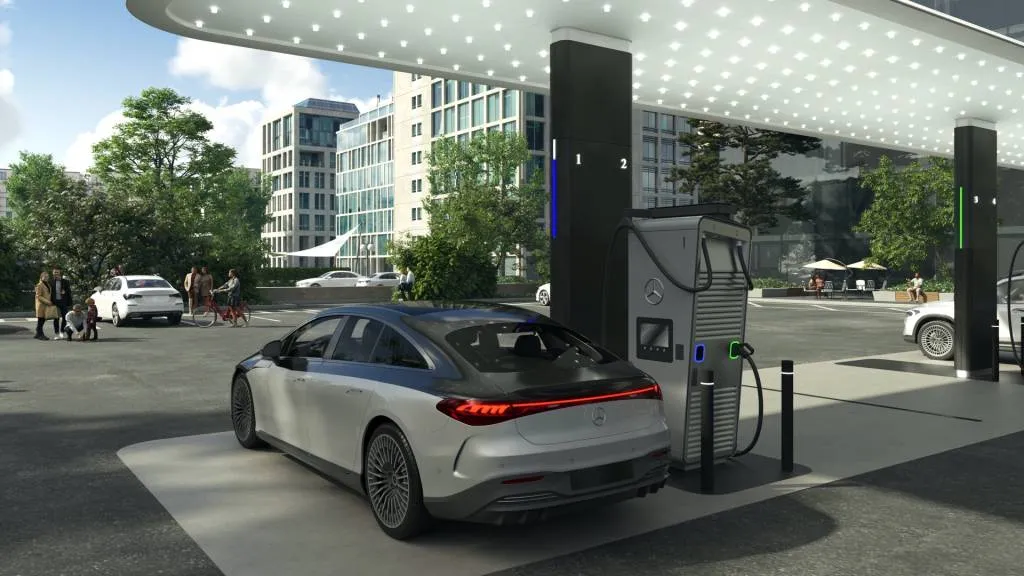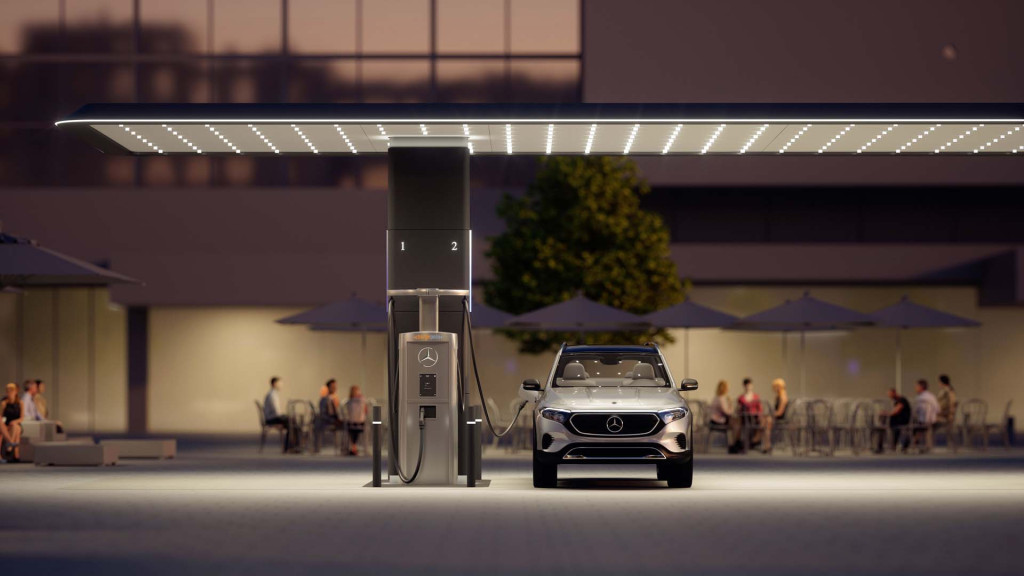Mercedes-Benz has ambitious plans to create its own EV charging network, which it’s terming its High-Power Charging Network, on several continents. That will include more than 2,000 DC fast-charging connectors by the end of 2024, it says.
This won’t be an aggregation of other networks’ stations. The company on Monday once again confirmed this, as well as how it plans to begin the rollout of this network—with stations in Atlanta, as well as Chengdu, China, and Mannheim, Germany, in the fourth quarter of 2023, with the first going into operation in October.
With its own network, Mercedes-Benz aims to create more than 2,000 of the stations it’s calling Charging Hubs, offering a combined 10,000 connectors globally by the end of the decade. The company has already said that this network will focus on North America initially.

Mercedes high-power charging stations
Now the company has indicated how this might fit in alongside the recently announced North American EV charging network with six other automakers. It explains that the High Power Charging Network is “an additional key component of the company’s overall electrification strategy”—indicating that both projects are going ahead and will be differentiated.
Thus, with the addition of the yet-unnamed North American network, Mercedes has potentially committed to even more chargers.

Mercedes-Benz EV charging network
Mercedes committed to a switch to the Tesla NACS port for North America in July, although the switch will take a couple of years to start finding its way into vehicles, with a CCS adapter first available next year. It says that depending on the region, these stations will offer charging currently up to 400 kw, delivered via CCS1, CCS2, NACS, or GB/T connectors—implying that North American stations might offer a mix of CCS1 and NACS connectors. Stations will offer refreshments, snacks, and restrooms, as well as canopies over charge points, surveillance cameras, and intelligent light poles that have LED elements updating on the charging status of vehicles. And, of course, they’ll continue to offer Plug & Charge convenience that allows corresponding billing details for a vehicle to automatically be identified.
These stations will also employ 100% renewable energy, the company says, with either direct green electricity supply contracts or otherwise renewable energy certificates.













